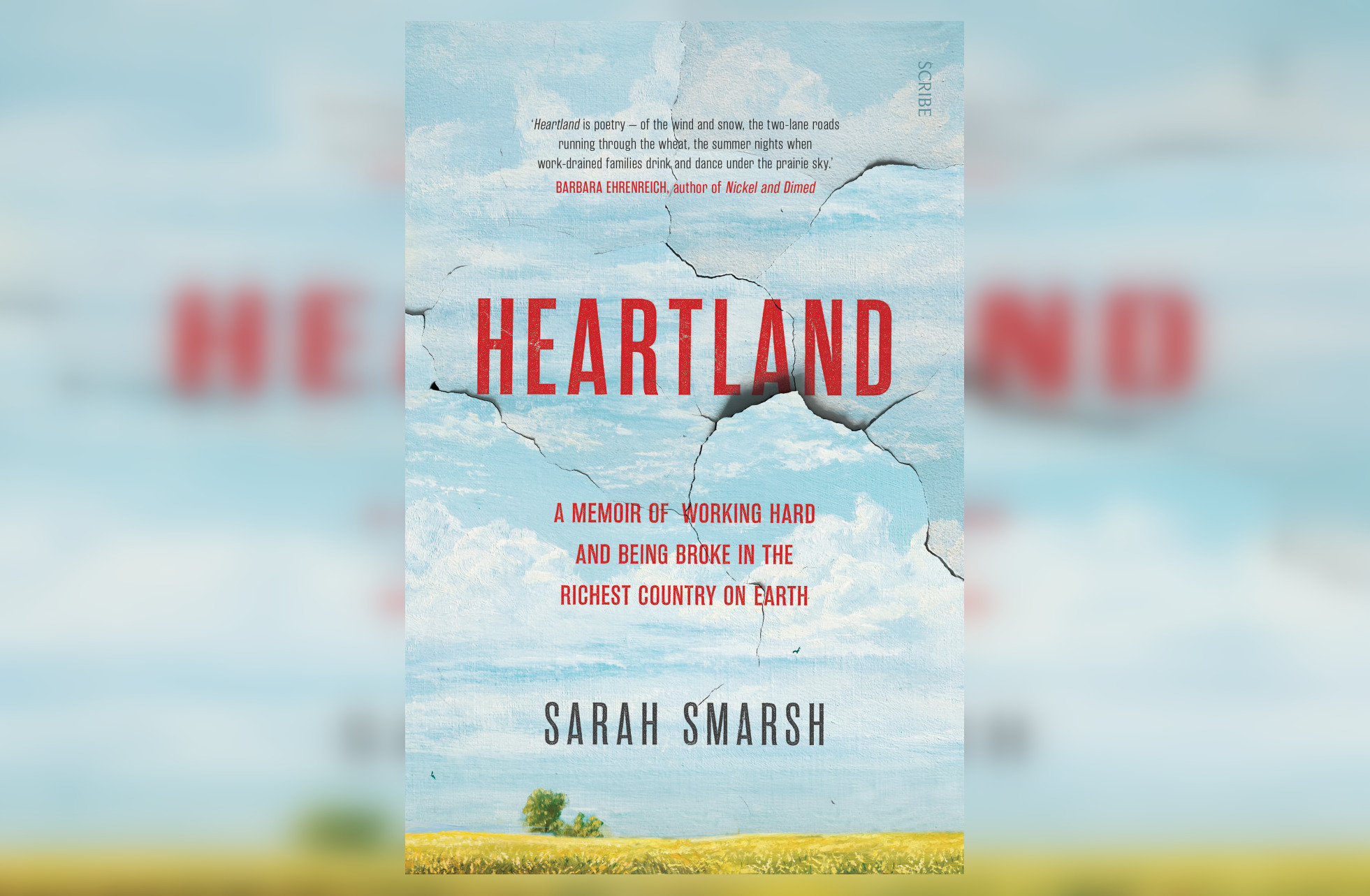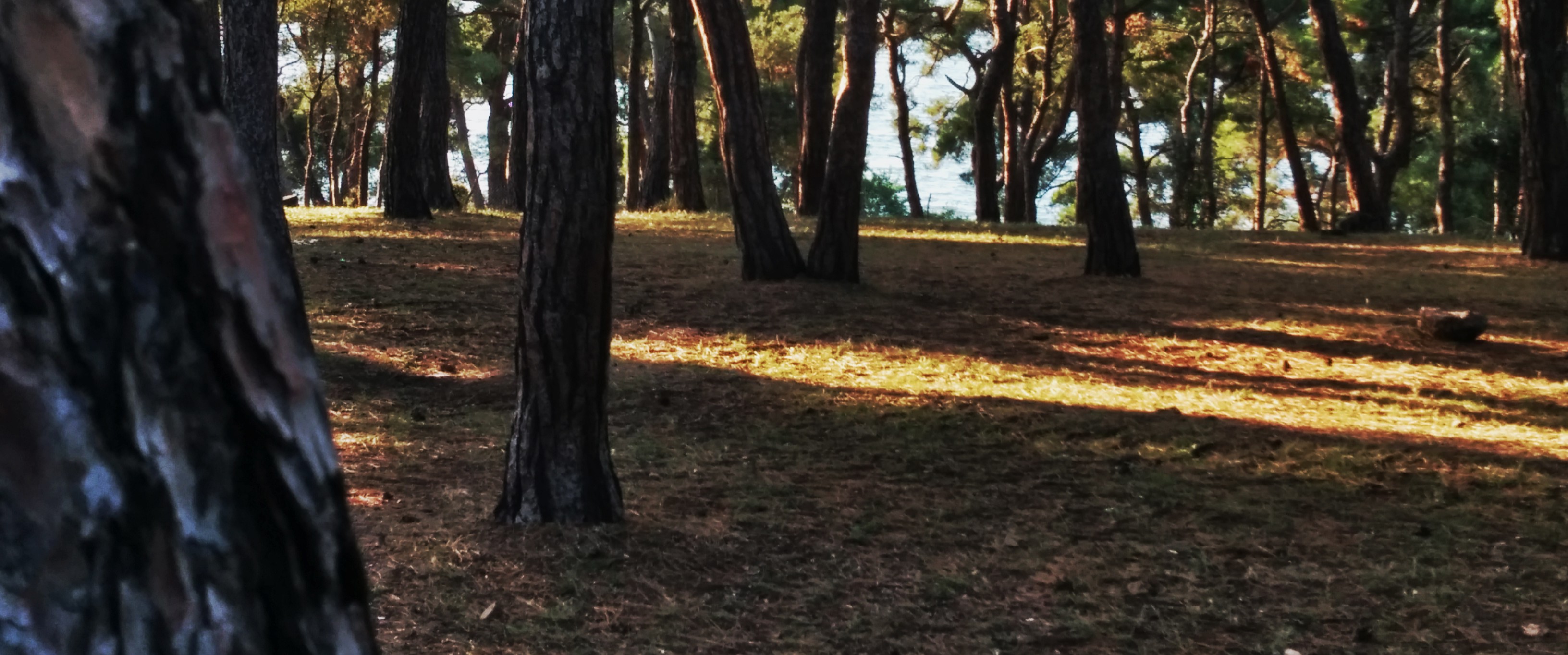When I first picked up Sarah Smarsh’s book Heartland: A Memoir of Working Hard and Being Broke in the Richest Country on Earth, I expected to find a familiar story. Like Smarsh, I grew up in a rural farming community in America’s heartland. I knew the unceasing nature of work on a farm, though ours was just big enough to sustain my own family, and the weekly routine of clipping out coupons that determined which cereals you could buy at the grocery store that week.
But the tale of deep, cyclical poverty passed down from generation to generation and the disruptive effects it had on the Smarsh family is unlike anything I have ever known. And that is the point of Smarsh’s book: Most Americans have no idea just how economically challenging life can be in the area of the country most frequently regarded as flyover land.
Smarsh describes growing up in a life in which the women in her family had children in their teens and then blew like the wind from one location to another as they tried again and again to make a new life for themselves. Meanwhile, the men are largely abusive characters whose major contributions are hard knocks and chaos which often provoke the next relocation. Smarsh’s mother attends five schools in five different towns within a single year; Smarsh herself attended eight schools by ninth grade. Each time, the education is disrupted, the students fall farther behind, and, excepting Smarsh, they eventually drop out. With their education stunted and, inevitably, a baby on the way, yet another generation is locked into the cycle of poverty.
That’s not to say that the family doesn’t work hard. Smarsh writes lovingly of the hard work that her forebears sink into the Kansas wheat farm she grew up on or in factories, diners, and construction sites. Many work multiple jobs to keep their children fed and clothed. The very work that puts roofs over peoples’ heads and feeds Americans from coast to coast is not valued enough to feed and shelter those same workers.
Smarsh tells the story from the perspective of the first to break the cycle. She attended college at the University of Kansas in Lawrence, a place that seemed liberal and fancy to her at the time. She received her MFA in nonfiction writing from Columbia University, worked as a professor, and bought her own home. Throughout the book she breaks the family narrative to talk directly to a daughter she imagines she would have birthed had she not broken the cycle of poverty and teenage motherhood. It’s a device that the book could done just as well without, but it emphasizes Smarsh’s sense of a path not taken.
As Smarsh unfolds her own family history, she offers a sharp commentary on the socioeconomic structures that both shame the poor and perpetuate the cycle of poverty: The poor are drug tested before they can receive assistance and forced to sign forms promising they won’t conceive while receiving benefits. They are subjected to fines for the smallest slip-ups, such as a late utility payment, and minor offenses cost them jail time, bail money, and fees to clear their record. At the same time, hayrides, barn weddings, and beer in Mason jars become valuable commodities for city people who are willing to pay for the pleasures of an agricultural life without paying any attention to its burdens.
The book juxtaposes not just the wealthy and the poor but also urban versus rural. The point is most poignantly made when the government claims a portion of Smarsh’s grandparents’ farmland to create a water reservoir that will provide water for the citizens of Wichita approximately forty minutes away. Her own family had to dig a separate well alongside the reservoir for their own water. “It’s an old story,” Smarsh writes, “pushing poor rural communities out of the way to tap natural resources for cities.”
Smarsh, especially at the beginning, has a rare way with words that immediately situates the reader in rural Kansas. “By the time Jeannie started high school, they had changed their address forty-eight times, best I can count,” she writes of her mother’s childhood. “A hailstorm had hit Hutchinson that summer, and a lot of shingles needed torn off,” she writes later when describing how her construction worker father picked up work where he could find it. And when commenting on labor organizing efforts, Smarsh writes, “Being out in the country kept us separate from that sort of organizing…Fields need tilled and cattle need fed whether it’s a federal holiday or not.” On Twitter, Smarsh noted that the copy editor changed all of these dialectal instances. Smarsh pushed back and, in doing so, preserved an element of regional diction that permeates much of America’s best literature.
Her plain language with its unique country lilt is paired with elegant turns of phrase that describe both Smarsh’s family’s specificities and also broader truths. “You can go a very long time in the country without being seen,” she writes of her grandmother Theresa who hasn’t bothered to update her wardrobe since the 1960s. Who would notice anyway? But there’s a broader context for this statement at play: Most Americans have never seen the country, not the country Smarsh writes of, the unglamorous, dirty, rural America where people live in aging farmhouses and trailer homes.
And it’s worth seeing, a belief Smarsh asserts in the act of writing this book and presenting her place of origin to us. It is dirty, yes; lacking polish, certainly; and life is cruelly difficult for many who live there. But in the middle of all that, she shows us the love that cements her to her grandparents, the inherited work ethic that quickly propels her academic career forward, and the beauty of a supercell thunderstorm raging across the plains.
“Few people from my place ever ended up on a college campus and beyond to tell its stories,” Smarsh writes near the end of Heartland. But she did, and her book is a call to action to fix the economic system and make the same journey possible for more of America’s forgotten working class. Those stories, including Smarsh’s, are needed now more than ever.




